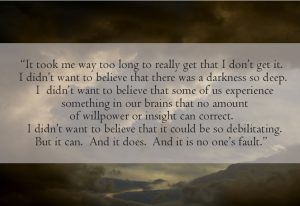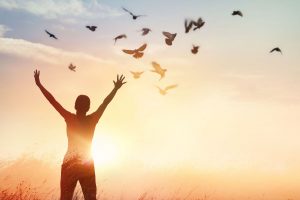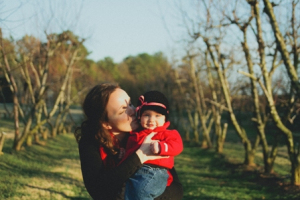Equipping the Community

The Barnabas Center believes that God uses struggle to lead people back to Him.
Therefore, our goal has always been to join people in struggle in order to discover how God might use it for good. Yes, we hope to relieve pain – the searing grief, the shame of a failure or the wound of betrayal. Yes, we want people to experience healing and reconciliation. But we have always wanted more. We want struggle to bring us back to a fundamental truth about ourselves: that we are dependent creatures – made for grace. We want more for people than relief; we want redemption.
The inevitable (and often unjust) pain in life – asks us to face our true situation. We are not independent; our self-reliance (idolatry) is futile. We must face our brokenness and limitation – and remember that we need God. The experience of our inability to make life work exposes our need for God’s love. And in remembering, perhaps we will receive from the Father in new ways.
During the Vision 2020 process, The Barnabas Center has chosen new goals to expand that vision of Redemptive Struggle. Namely:
1- We want to help our Christian communities engage the reality of struggle differently. First, we want to help the Body of Christ learn to recognize and acknowledge the suffering that is occurring among our people. This means learning to talk honestly about what is really happening in our homes and hearts. The secrets are killing us. We believe God wants to bring these struggles to light.
2- Secondly, we want to equip the Body to be a safe place to search for the redemptive purpose hidden in suffering. We want to help Christians learn and practice the relational skills that provide a safe place for people to share hurts, fear, and shame. We want to teach the average person to ask helpful questions, offer productive insight and to give biblical and grace-centered direction. Most of all, we want Christians to be a steady, caring presence to the hurting.
The Barnabas Training program, which has been in place for several years, was designed to do just this. It combines teaching and small group experience on ‘How to Have Redemptive Conversations’ concerning the struggles of life. With Vision 2020, we want to overhaul and expand this program so that more people will have access and training.
We want to provide more opportunities where people can practice the understanding and the skills that they are developing. The best medium for this is face-to-face – as in the training groups that we provide on site at The Barnabas Center. But we believe that we can augment the face-to-face training by producing a broad tier of other experiences: books, booklets, videos, podcasts and manuals that make self-facilitated groups possible. On-line interactive training is also a possibility – such as video-conferencing or online discussion groups.
Here are just a few of the possible topics:
‘What is a Redemptive Conversation/Friendship’
‘What does it look like to walk alongside someone in struggle:’
– when they are depressed?
– going through a divorce?
– suffering a betrayal?
– when a family member is walking in addiction?
‘What are the gospel categories when someone is in pain?’
‘What to say when there isn’t anything to say.’
‘When are medications needed?’
‘What is spiritual about anxiety?’ ‘What is physical?’
‘What keeps me from being involved?’
‘What does broken human being look like redeemed?’
We appreciate your help and prayers in making our ministry possible and we look forward to partnering with you for the Kingdom’s sake.
To learn more about the Vision 2020 campaign please watch this brief video:
.
.
 Roger Edwards joined The Barnabas Center in 1991. In addition to counseling individuals and couples, Roger teaches and leads discussion groups about applying the Bible to everyday life. He is a licensed professional counselor, holds a master’s degree in biblical counseling from Grace Theological Seminary in Indiana and earned a bachelor’s degree in engineering from the University of North Carolina at Charlotte. He is married to Jean, and they have seven children.
Roger Edwards joined The Barnabas Center in 1991. In addition to counseling individuals and couples, Roger teaches and leads discussion groups about applying the Bible to everyday life. He is a licensed professional counselor, holds a master’s degree in biblical counseling from Grace Theological Seminary in Indiana and earned a bachelor’s degree in engineering from the University of North Carolina at Charlotte. He is married to Jean, and they have seven children.








